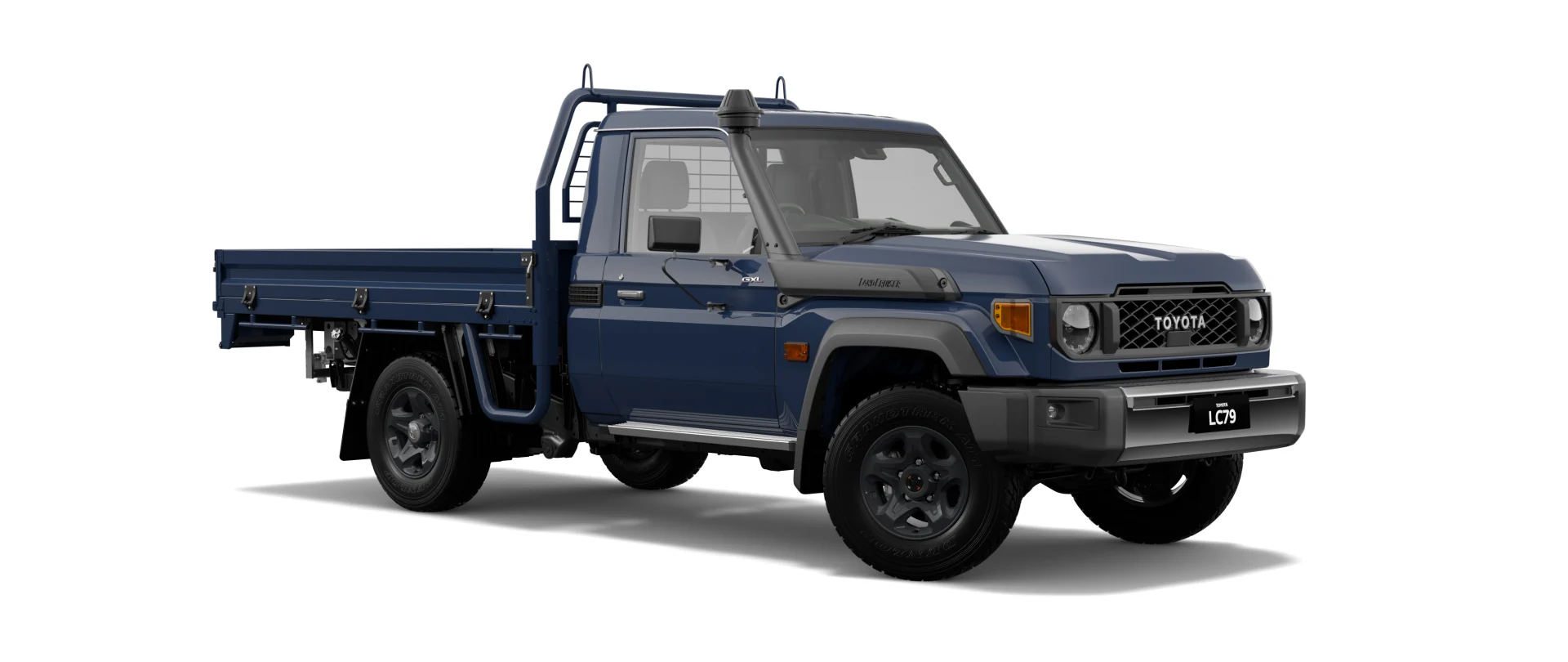The FJ70 Land Cruiser: A Year in Review - And Why It Won't Come to America
Palmer Luckey's tweet highlights what US enthusiasts are missing - a look at what our data shows about the vintage Land Cruiser market

Palmer Luckey's tweet got American off-road fans buzzing - "Working on this," he teased, alongside a post about the LC70. The dream? Bringing back a version of the Land Cruiser that still lives up to its name - no leather, no touchscreens, just a steel-boxed tool built to go anywhere.
The 70 Series Land Cruiser (including FJ70, HZJ75, and later 76/78 variants) has been in continuous production since 1984. Forty years on, it's still assembled new in markets like Australia, Africa, and the Middle East. The platform is old-school but proven - solid axles, ladder frame, mechanical diffs, diesel torque, and reliability that fleets and miners trust their lives to.
Why the LC70 Still Isn't in the U.S.
The U.S. won't see a new LC70 anytime soon - for three main reasons:
Safety compliance: It lacks modern crash structures, stability control, and airbags needed for FMVSS certification.
Emissions: Its diesel engines can't meet EPA standards without major re-engineering.
Positioning: Toyota America's Land Cruiser strategy is now premium - an $80K+ luxury SUV. A $45K workhorse would undercut that.
And even used imports face the 25-year rule, leaving U.S. fans watching from afar as Australia and the Middle East keep the legend alive.
What the Data Shows
Despite its cult reputation, our data suggests enthusiasm for the older 70-Series is mediocre - at least in the auction market.
Across global listings and U.S. imports (mostly post-1990 JDM and Australian trucks now hitting the 25-year mark), the trend is clear:
Flat pricing: Median sale values have held steady for 12 months - neither climbing nor collapsing. The initial import-eligibility bump seems to have plateaued. Source
Lower sell-through: The 70-Series ranks sixth-worst among Land Cruiser generations for completed sales over the past five years. That suggests the buyer pool is thinner than the online hype, and sellers may be overpricing relative to demand.
Utility over polish: The trucks that do sell still follow the same pattern - buyers prioritize diesel drivetrains, troop carriers, and reliability over cosmetic perfection.
In short, the 70-Series is holding value, not growing it. Its story today isn't one of surging collector interest, but of a loyal niche: operators and enthusiasts who still prize mechanical honesty - not speculative investors chasing momentum.
What This Means
The LC70 endures as a cultural icon, but its market performance shows it's moving from hyped collectible to steady workhorse classic. Liquidity is softer than for FJ40s, FJ60s, or 80-series trucks, and pricing stability reflects a mature market more than an emerging one.
For sellers: real-world comps matter more than nostalgia.
For buyers: patience and condition win - not hype.
Until newer batches of 25-year-eligible imports arrive, the LC70 remains the one you admire more than you chase.